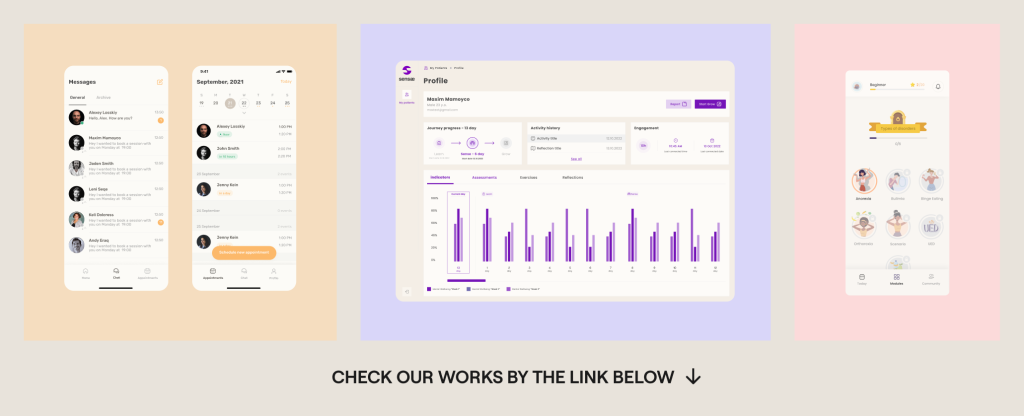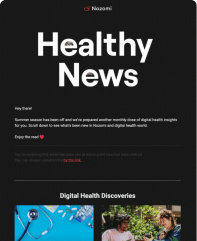What is cloud computing in healthcare?
Ever heard of cloud computing? It’s basically using the internet to access and manage servers, storage, databases, networking, software—you name it—without the hassle of owning physical hardware. Pretty neat, right?
Now, why should you care, especially if you’re in the healthcare world? Well, cloud computing is turning the healthcare industry on its head, making things faster, cheaper, and more efficient. Let’s dive into why it’s such a game changer.
Imagine being able to scale your operations up or down on the fly without breaking the bank. That’s the magic of cloud computing in healthcare industry. It lets healthcare organizations use what they need, when they need it, without spending a fortune on equipment and maintenance.
Plus, having electronic health records (EHRs) on the cloud? Game changer! It means doctors from anywhere can pull up your medical history in a snap, making sure they make informed decisions. This not only speeds up the care process but also improves your outcomes as a patient.
And let’s not forget about the data. Cloud based analytics can sift through mountains of data to find trends and insights that help predict outbreaks, tailor treatments, and generally keep us a step ahead of illnesses.
Telemedicine, which is basically doctor visits via video call, also gets a boost from cloud computing. It makes it possible to treat patients in remote or underserved areas who otherwise might not get the care they need.
So, what is cloud computing in healthcare? Сloud technology is on a meteoric rise, with projections estimating the global market value to surpass $89 billion by 2027. Moreover, Infrastructure as a Service (IaaS), a favorite for transitioning healthcare infrastructures to the cloud, is leading the charge as the fastest-growing cloud service, expected to expand at an impressive CAGR of 32 percent by 2027.

Source: Unsplash
Exploring the Utilization of Cloud Computing in Healthcare industry
- Healthcare Information Systems in the Cloud
Isn’t it something how cloud-based healthcare information systems are changing the game? These systems are a real boon, enhancing everything from patient care to the nitty-gritty of querying services, billing, and even managing finances and HR. What’s really cool is how they streamline the whole process of developing, testing, and rolling out new applications. This isn’t just about speed—though they definitely deliver on that—it’s also about fostering better teamwork and making it easier to integrate with other healthcare systems. All in all, they’re making healthcare more connected and a lot more efficient.
- Customization and Flexibility in Cloud Computing
Cloud computing is a game changer in healthcare, especially when it comes to tailoring electronic health record (EHR) systems to meet specific needs. Remember the old days when customizing anything tech-related meant you needed heavy-duty programming skills and an IT wizard on speed dial? Well, those days are fading fast, thanks to cloud based healthcare solutions. Now, healthcare providers can pick and choose from a variety of customizable options and ready-made care plans. This means they can shape their systems just the way they want, boosting the efficiency and effectiveness of their workflows like never before. How’s that for flexibility? And let’s not forget the role of cloud storage in healthcare, which further enhances the flexibility and accessibility of these systems.
- Drug Discovery and Life Science Research
Cloud computing is revolutionizing the way we discover drugs and conduct life science research. Let’s dive into how this tech marvel is making waves. Drug discovery, for starters, is a data-heavy affair. Imagine the sheer amount of computing grunt needed to sift through colossal datasets and pinpoint promising molecules for further study. That’s where Infrastructure as a Service (IaaS) comes into play. Thanks to the cloud, researchers get the computational horsepower they need on tap, speeding up the entire drug discovery journey and pushing the envelope in healthcare innovation.
But that’s just the tip of the iceberg. Cloud computing is also a powerhouse for life science research, offering platforms that are not just powerful but also scalable and flexible. Here’s a snapshot of what’s happening in the clouds:
– Genomic Research. Cloud platforms are a boon for researchers swimming in large genomic datasets. They’re helping speed up breakthroughs in personalized medicine, making it faster to go from big data to big discoveries.
– Drug Development. Collaboration is key in drug development, and cloud based healthcare solutions are the perfect facilitators. They connect researchers from around the globe, making it easier and quicker to go from concept to creation.
– Regulatory Compliance. When it comes to research, security and compliance are non-negotiable. Cloud services tick these boxes by ensuring that data isn’t just stored securely but also meets stringent regulatory standards, streamlining the management of sensitive research data.
In short, cloud computing isn’t just a tool; it’s a transformative force in drug discovery and life science research, enabling smarter, faster, and more collaborative science.

Source: Unsplash
- High Data Storage Capacity
One of the standout perks of cloud solutions for healthcare industry is its colossal data storage capability. Think about the tons of digital data healthcare facilities churn out every day—from detailed medical records and numerous prescriptions to endless lab results. Managing all this data traditionally means needing more and more physical storage space, which isn’t just a hassle; it’s also a recurring expense that can really add up.
Enter cloud storage, the game-changer. It throws open the doors to virtually unlimited storage space, letting healthcare providers stash away massive amounts of data without sweating about physical limits. Plus, it slashes the need for costly in-house storage setups. This scalability is a lifesaver for healthcare operations, big and small, giving them the freedom to grow and manage their data efficiently, all thanks to the cloud.
- Personal Health Records (PHRs)
Cloud-based personal health records are transforming the way individuals interact with their health data. These tools make it super easy to access, manage, and share your health information right at your fingertips. With advanced sharing features, you get to control who sees your health data and how it’s used. Thanks to the cloud, managing your personal health records becomes more flexible and user-friendly, which boosts patient engagement and supports smarter health decisions. So, whether you’re tracking your fitness progress or coordinating care with doctors, cloud-based PHRs put the power back in your hands.
- E-Health and Telemedicine
Cloud computing is a game-changer for e-health and telemedicine. It allows doctors to deliver remote healthcare services seamlessly, no matter where they or their patients are located. Using cloud platforms, telemedicine services become a cinch, enabling real-time sharing of medical data among healthcare professionals. This not only cuts down on needless hospital visits but also expands access to healthcare services, making medical care more accessible and efficient for everyone involved.
Benefits of cloud technology in healthcare
- Quick on Your Feet. Cloud computing gifts healthcare organizations with unmatched agility and resilience, especially during crises like the COVID-19 pandemic. Those set up on the cloud or who quickly made the shift were able to keep their services running smoothly with little to no hiccup. It’s like having a magic wand that lets healthcare providers adapt on the fly and roll out new solutions as fast as you can snap your fingers. This is one of the key advantages of cloud computing in healthcare.
- Tight-Knit Data Security. The next of the benefits of cloud technology in healthcare — patient secrets, that is. With patient data being ultra-sensitive, cloud computing steps up with top-notch security features like encryption and access controls to keep prying eyes out. Plus, cloud services dance well with regulations like HIPAA, helping healthcare folks stay in line while reaping the cloud’s juicy benefits.
- Room to Grow for EHRs and Images. Healthcare data is massive, from electronic health records to those detailed radiology images. Cloud storage stretches as far as the eye can see, cutting out the need for clunky on-site storage setups. This means healthcare providers can keep and access records easily, without bumping into the limits of physical storage.
- Sharper Data Analysis and Monitoring. Imagine having superpowers to analyze and monitor medical data—that’s cloud computing for you. This tech lets healthcare providers dive deep with advanced analytics tools, bringing out insights that push patient care and outcomes to new heights.
- Working Together Like a Dream. Cloud solutions for healthcare industry is the glue that binds healthcare professionals together. With medical records up in the cloud, doctors can dive into patient data in real time, ensuring treatments are on point and coordinated. It simplifies sharing info among physicians, dodging redundant tests and enhancing patient outcomes with every step.

Source: Unsplash
How’s cloud technology in healthcare shaping up, and what’s next on the horizon?
Ever wonder what’s buzzing in the tech world these days? Well, cloud technology in healthcare isn’t exactly the new kid on the block, but it sure is one that never stops growing and evolving. It’s like that dynamic friend who’s always picking up new skills and surprising you. Cloud computing delivers all those essential services—like servers, storage, databases, you name it—right over the internet.
Now, cloud solutions for healthcare industry aren’t just about convenience; it’s also about scaling up with ease, being flexible, saving costs, beefing up security, and sparking innovation. But, it’s not all smooth sailing. It’s got its fair share of hurdles, too—think data privacy concerns, regulatory hoops, issues with working across different platforms, and even environmental impacts. In this chat, we’ll dive into the latest trends and what they spell out for various industries.
Ready for a sneak peek into the future? Here’s what’s lining up:
- AI and Machine Learning. These tech twins are transforming how systems mimic human intelligence—like reasoning and decision-making. Cloud computing gives AI and ML a massive playground of data and power, making them smarter by the day. On the flip side, AI’s helping cloud computing itself become more efficient and secure. Think smart resource management and beefed-up cybersecurity.
- Hybrid and Multi-Cloud Strategies. Imagine combining the best of both worlds—private and public clouds. Or cherry-picking healthcare cloud applications from different providers to best suit your needs. This mix-and-match approach helps businesses stay flexible and secure, making sure they’re getting the top-notch features from each cloud service.
- Eco-friendly Cloud Computing. Going green with cloud services in healthcare? Absolutely! This is all about reducing the environmental footprint of digital operations. From using renewable energy to power data centers to cutting down on hardware, green cloud computing is about making tech not just smart, but also sustainable.
- Edge Computing and 5G. This is about processing data right where it’s collected. Less lag, less cost, more privacy. And with 5G in the mix, edge computing’s potential skyrockets, paving the way for everything from smarter cities to next-gen telemedicine.
- Serverless Computing and Microservices. Writing code without fretting over servers or system software. Serverless computing is all about letting developers focus purely on their code. And with microservices, healthcare cloud applications are broken down into smaller, manageable pieces, making them easier to handle and evolve.
So, as cloud services in healthcare keep reshaping the tech landscape, it’s clear the sky’s the limit. Whether it’s making businesses more agile or powering the latest smart tech, cloud computing is at the heart of today’s digital revolution. What a time to be alive and plugged in, right?
Conclusion
At our core, we’re dedicated to assisting healthcare startups in crafting digital products and steering healthcare organizations through significant changes.

Curious about our past work? Explore our portfolio of case studies here: https://studio.nozomihealth.com/work
Feel free to drop us a line at m@nozomihealth.com, and let’s chat about how we can make your product truly impactful.







